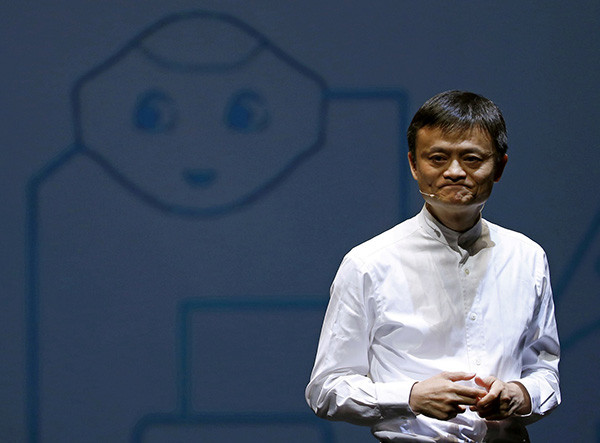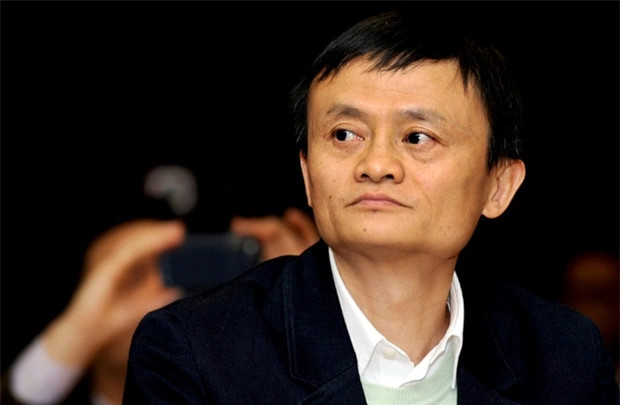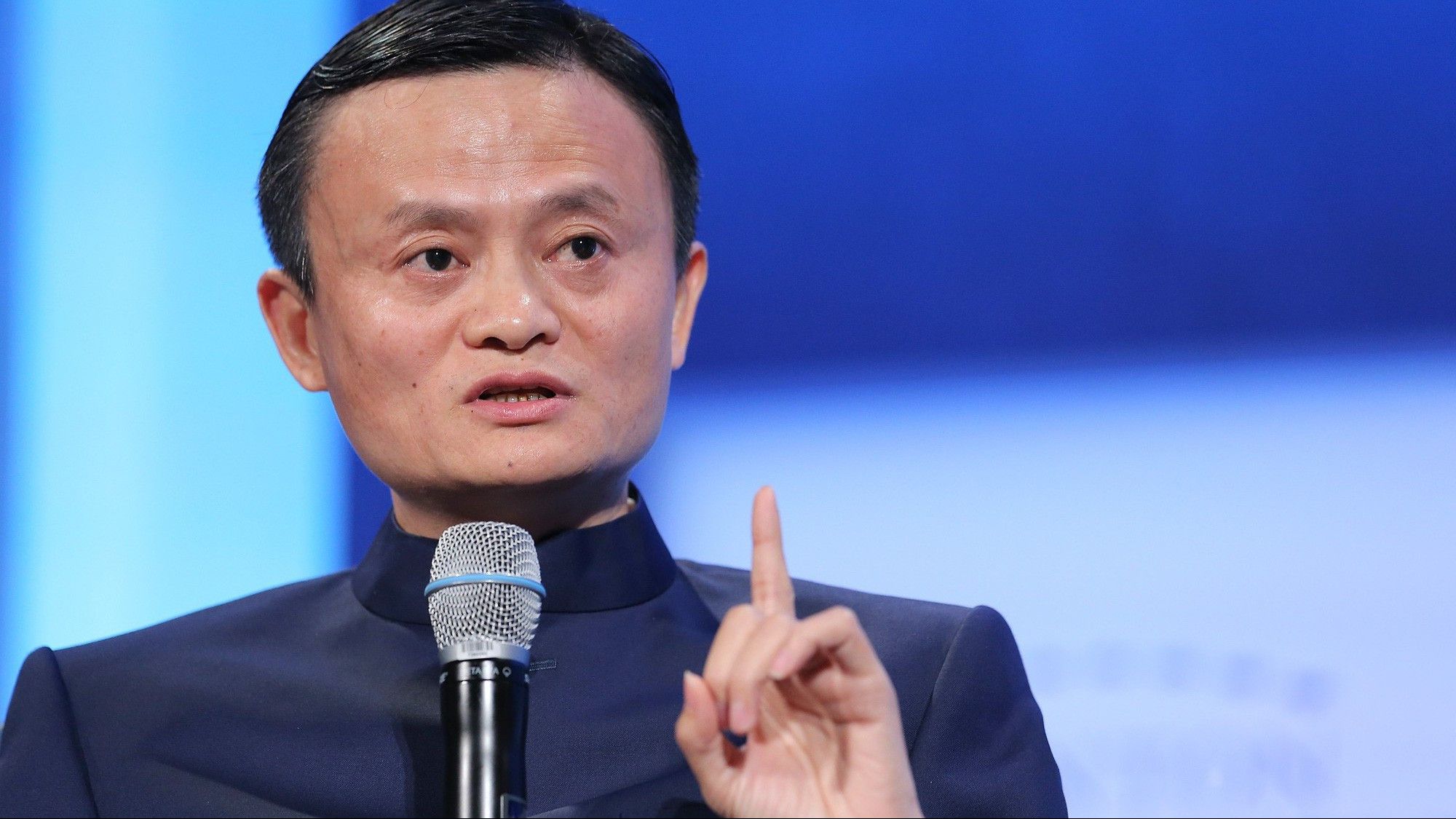Billionaire Jack Ma: The journey from a poor man to the "tycoon" of e-commerce.

Before becoming successful and wealthy, most entrepreneurs around the world have experienced many failures. But they do not give up; instead, they see those failures as lessons and motivation to move forward, and among them is billionaire Jack Ma.
Breaking through from a poor childhood
Jack Ma was born on September 10, 1964, into a poor family in Hangzhou (China), with an older brother and a younger sister. From a young age, Jack Ma showed great talent for learning English and had a deep love for the subject. However, he was very poor at math; Jack Ma was not an outstanding student. In fact, he almost could not enter middle school, failing an elementary school exam twice, failing the entrance exam to middle school three times, and failing the university entrance exam two more times, Jack Ma said. After the visit of U.S. President Nixon to Hangzhou in 1972, Jack Ma's hometown became a famous tourist destination. While still in school, he would wake up early, go to the city's main hotel, and offer to guide tourists around Hangzhou to learn English. The name "Jack" was given to him by a tourist.
After graduating from high school, he applied to university but failed twice. Failing university is not uncommon, but scoring less than 1% in math on the entrance exam is a completely different story. Jack Ma said he only scored 1 out of 120 in math on the university entrance exam. After two failures and many efforts, on his third attempt, he was accepted into Hangzhou Normal University, which was considered the worst school at that time. Jack Ma graduated in 1988 and began applying for 30 different jobs, all of which he was rejected from. He even applied for a position as a police officer, but they took less than a day to return his application with just a few words explaining that he did not meet the standards. Even when applying to KFC, he was rejected before finally being hired as an English teacher. Jack Ma believed that this failure was largely due to his appearance and height. Jack Ma eventually got a job as an English lecturer at a local university. Although he only earned 12 USD a month at a university in Hangzhou, he still loved this job very much.
The journey to becoming the "tycoon" of e-commerce
Jack Ma had no experience working with computers or programming. However, he was fascinated by the Internet during his first use when he went to the U.S. in 1995. At that time, he had just opened a translation company and went to the U.S. to assist clients in debt recovery. He typed the word "beer" into the search bar but did not find any type of beer from China. This prompted Jack Ma to pursue the idea of establishing his own Internet company in China. Upon returning to China, Jack Ma launched the website China Pages, which gathered Chinese businesses in various fields looking to find foreign customers. China Pages was regarded by many as the first e-commerce website in China. However, China Pages later failed, and Jack lost everything with another e-commerce project. But failure never discouraged Jack Ma; he once asserted that my failure is not important, at least I conveyed my idea to others, and if I do not succeed, others will. He also expressed his determination, saying, "Today is very cruel, tomorrow will be even more cruel, but the day after tomorrow will be wonderful."
And that beautiful day came four years after China Pages collapsed when Jack Ma invited 17 of his friends to his home to discuss and exchange ideas about the potential for e-commerce development. He convinced them to invest with him to establish a third e-commerce website called Alibaba. The goal was to help exporters post their goods so that customers could buy directly over the Internet. At the time of Alibaba's founding, during his poorest moment, Jack Ma had only 200 yuan (about 700,000 VND) left in his bank account. At one point, to save money, Jack Ma had to eat instant noodles for months, and now just seeing instant noodles makes him feel sick. Shortly after, this service began to attract many sellers from various countries around the world. The team continued to work together despite facing many difficulties. The Alibaba team initially worked on a government project in Beijing. Although it was not bad in Beijing, Jack Ma felt that he had no autonomy there and could not decide what he wanted to do, so he decided to return to Hangzhou to start a business again.
After its establishment, Alibaba faced financial pressure, with only 200 yuan left in the bank at its most desperate time. Once, Jack Ma met with an investor in New York, and the other party set quite strict conditions. Jack Ma was dissatisfied but hesitated, so he called back to ask the finance department and received the information that the company was out of money. Not long after, Jack Ma's shopping service attracted members from all over the world. By October 1999, the company had raised 5 million USD from Goldman Sachs and 20 million from SoftBank - a Japanese telecommunications company specializing in investing in technology companies. "We will succeed because we are young, and we will never, never give up," Jack Ma once told his employees. In 2005, Yahoo invested 1 billion USD in Alibaba in exchange for a 40% stake in the company. This was a huge amount for Alibaba at that time... Moreover, the successful IPO of 150 billion USD made it the most successful stock issuance in the history of the New York Stock Exchange. Jack Ma suddenly became the richest man in China with an estimated net worth of 25 billion USD.
The simple billionaire
However, after 19 years of establishment, this company became an empire worth hundreds of billions of USD. Yet, the "tycoon" of e-commerce Jack Ma announced that he would resign and chose CEO Daniel Zhang as his successor to run the Alibaba Group. According to the plan, the "torch" of Alibaba would officially be handed over to Daniel Zhang on September 10, 2019. The announcement of the "power" transfer occurred right at the time when the e-commerce giant Alibaba celebrated its 20th anniversary and also on Jack Ma's 54th birthday. Although he handed over the chairmanship of Alibaba to Daniel Zhang - who was currently the CEO of the group, Jack Ma would still remain on the board of directors until the Alibaba shareholders' meeting in 2020. Jack Ma planned to continue his role as founder and had the right to appoint most of the important personnel positions of Alibaba even though he did not hold a majority stake. Entrepreneur Jack Ma shared that although he currently has a lot of money, he still feels less happy than when he was teaching English.
Although he is a billionaire, Jack Ma still retains his inherent simplicity and does not favor extravagance. He even maintains simple hobbies such as reading, writing kung fu novels, playing poker, and practicing tai chi. Not only concerned about the poor, Jack Ma is also actively involved in environmental protection activities. He is a member of the Global Nature Conservation Committee and has expressed passionate opinions at the Clinton conference in 2015. Jack Ma's life is always an endless inspiration for those less fortunate but eager to rise to success through their own efforts. Even in the most difficult times, Jack Ma never gave up his desire to achieve his dreams. Remember this billionaire's famous saying: "If you are still poor by the age of 35, it is your fault."
Jack Ma's business philosophies and startup lessons

Jack Ma's life philosophy has recorded a 50-year journey of ups and downs, and the experience of 20 years of entrepreneurship. Below are the business philosophies and lessons that the Chinese billionaire has drawn from his entrepreneurial journey.
Preparation and perseverance in pursuing goals
For Jack Ma, to succeed, one needs to prepare and persevere with it. As is known, Ma Van took the university entrance exam three times. The first two times he failed until the third time he was accepted into Hangzhou Normal University. Right after finishing five years of teaching, Ma Van established a translation company called Hai Bac. At that time, translation companies were still unfamiliar in China. Therefore, the business faced many difficulties. But with his perseverance and that of his colleagues, Hai Bac gradually stabilized and developed strongly.
Hardships before brightness
He believes that today is very difficult, tomorrow will be even harsher, but the day after tomorrow will be brighter. However, most of us die at the end of tomorrow and cannot see the glory of the day after tomorrow. Therefore, whatever you do, you need to persevere. Not giving up is the reason that brought Ma Van to the Internet. Once, while doing translation work for a company in the U.S., he realized that the company was a scam after a few days of work. They forced him to cooperate to deceive a company in China. To escape, Ma Van pretended to cooperate and then took the excuse to return home to survey the Internet market in China. After escaping, he set off for Seattle to learn about the Internet. Soon after returning home, Jack Ma formed a team and told them about his ideals. In the early days, he had to persuade each person and was sometimes even considered a fraud. However, the Internet was a fertile market in China, attracting many "eyes." After a long time, Ma Van and his colleagues all had good jobs at the Ministry of Foreign Trade. Ma Van decided to return to Hangzhou to start a business. On this return, he and 17 colleagues founded the e-commerce website Alibaba.
